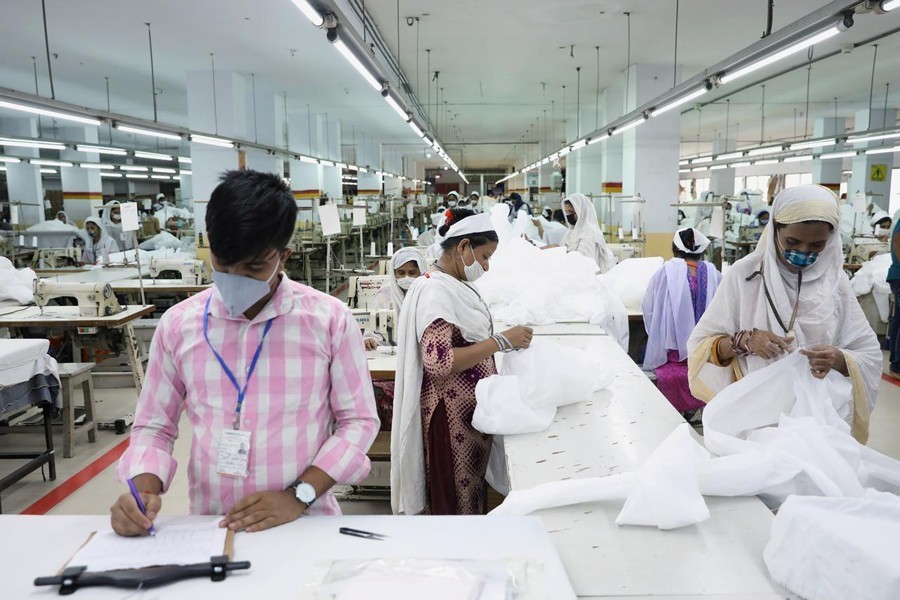
Published :
Updated :

During the first wave of Covid-19 last year, thousands of ready-made garments (RMG) workers encountered a series of unbearable troubles due to the callousness of factory owners and the administration. First, the government declared a public holiday to contain the spread of the deadly virus. Later it allowed RMG owners to reopen factories on condition of maintenance of health protocols. After a mass exodus, workers were compelled to return for fear of losing their jobs. Then again, many of them did not receive their due wages and salaries, and some even lost their jobs ultimately. However, the factory owners received a hefty amount from the government as soft loans to pay their workers.
The painful experiences bring little change in the attitude of the factory owners, especially the leaders of the trade bodies. They win over the authorities to keep the factories open during the second wave of Covid this year. Thus the government has allowed continuing production in garment factories during the lockdown imposed from April 5. However, there was a set of conditions like providing transport for workers and ensuring health safety in factory premises. In reality, thousands of workers have to walk a long way to join the work as there was no such transport. Leaders of the Bangladesh Garment Manufacturers and Exporters Association (BGMEA) and the Bangladesh Knitwear and Manufacturers Association (BKMEA) pay no heed to this problem. The government also doesn't feel any urgency to monitor this.
Now, these associations again seek a soft loan from the government to pay wages and salaries of garment workers. Since April 2020 the government channelled some Tk 105 billion to the garment factories to pay salaries and allowances and offset their losses. There is a lack of information on how many workers received their dues out of the fund.
As factories are open, it indicates that good work orders are there. Industry leaders argued that buyers are taking advantage of the pandemic and making deferred payments which have shrunken their cash flows. That's why they need soft loan support. However, it is clear that by seeking soft loan repeatedly, the country's largest industry is shifting its responsibility on to the government. Due to intense lobbying, the government is also providing any financial support RMG industry owners demanded.
Unfortunately, the industry itself is yet to develop a contingency fund for workers and a sustainable mechanism to provide the necessary support to the labourers in a crisis. Though some factory owners extended assistance to their workers during the pandemic, the industry does not take any such move collectively. One may remember that more than a decade ago, the BKMEA once opened a few fair price food outlets for workers before Ramadan. Although only a small number of workers could purchase essential food items like rice and pulses at a lower than the market price from BKMEA shops, the step was considered a moral support. They felt that factory owners had tried to do something to alleviate their plight. This kind of initiative is necessary now, and garment industry leaders must come forward to protect their workers' lives and livelihoods.


 For all latest news, follow The Financial Express Google News channel.
For all latest news, follow The Financial Express Google News channel.